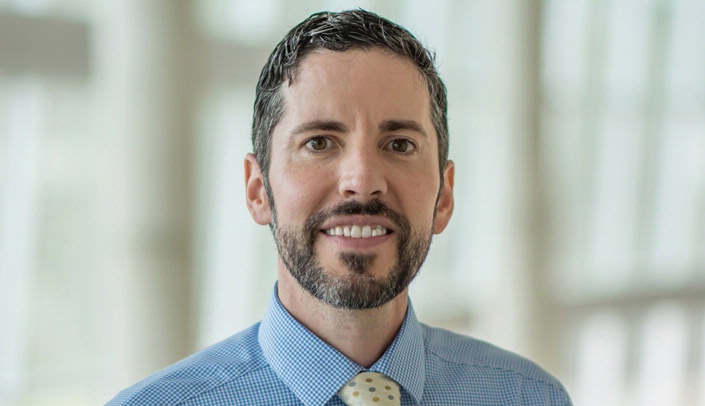Josh Turek, Ph.D., just got to Norfolk in September, but he’s hoping to make an impact there.
Dr. Turek is taking part in the MMI Psychology Department’s outreach clinic program, where a behavioral health professional from the department is posted in a medical home within a rural Nebraska community.
Though he just got to Norfolk, Dr. Turek is no stranger to the program — he spent last year in Columbus, Neb., serving children and families at a pediatric clinic. In Norfolk, he’s working at a federally qualified health clinic.
“The idea behind what MMI’s psychology department does with its outreach clinics is to integrate ourselves directly into primary care practices,” Dr. Turek said. “That can include family medicine, pediatric practices, those types of settings where kids get their medical care.”
Keith Allen, Ph.D., chair of psychology at MMI, said the program started in 1987, but on a small scale.
“We just walked across the street to the Ambulatory Pediatrics Clinic in the hospital,” he said. “But that was our first real effort to work alongside pediatricians — we were working out the kinks right here on campus.”
Once the program was up and running, the first outstate clinic to open was in Hastings in 1998. Other clinics have been opened in Kearney, Plattsmouth, Chadron, Rushville, Gordon, Crete and other locations — including in West Omaha.
“With the Norfolk clinic, we now have over 25 clinics in rural and underserved areas around the state,” Dr. Allen said. “We’re a terribly underserved state in terms of behavioral health services, so it makes it easier for us to put a behavioral health provider in an underserved area if they’re with other professionals serving that area — it makes it easier for someone to succeed.”
The medical home provides more well-rounded care, Dr. Turek said. “It reduces a lot of barriers that we traditionally associate with accessing mental health services, whether it’s going to a standalone clinic, or just some of that stigma attached with saying ‘I have to go to the psychologist today.’ Some of those barriers are taken down when it’s simply showing up at the same office you’d go to for a well child visit or if you’re not feeling well.”
Although there are other psychologists in Norfolk, few specialize in treating children and adolescents.”We all (MMI faculty) come with training primarily working with children, and children have unique behavioral health needs that aren’t seen with adults,” he said. “A lot of what we do also includes working directly with parents and helping them address their child’s behavioral health needs.”
Studies at MMI have shown that having a behavioral health provider housed with the primary care physician in the medical home model greatly facilitates patients’ follow-through rates on attending behavioral health appointments.
Typically 25 percent of people referred to a behavioral health provider actually attend an appointment; in the medical home model follow-through rates are closer to 80 percent. This could be due in part to the “warm handoff,” of the patient to the behavioral health provider, allowing the physician to directly introduce the behavioral health professional.
Dr. Turek has seen why.
“It takes away that unfamiliarity,” he said. “That’s especially important in more rural communities and the smaller communities around Nebraska, where there’s probably been a high level of trust established with their physician.”
Dr. Turek said he is highly committed to the model.
“I think it provides much needed access for children and their families that previously didn’t exist,” he said. “If you think of a trip from Norfolk to Omaha even that’s a two-hour trip — so you’re looking at families taking what amounts to an entire day off of work for simply one visit. Instead, if I can serve them in the community and become part of that community as a trusted advisor, I think that’s important.”
Dr. Allen credited his predecessor, Joe Evans, Ph.D., with being the architect and champion of the integrated care effort.
“He made this happen, in part because of his vision, but also because he’s been able to secure substantial and continuous funding on the federal level to train interns in this model ” Since 2000 alone, over 225 interns and post-doctoral fellows have been trained in this model of care, many of whom have them gone on replicate the model themselves in their own practices across Nebraska and in numerous other states, including Michigan, Pennsylvania, Florida, Colorado, Iowa, Washington, and California.
